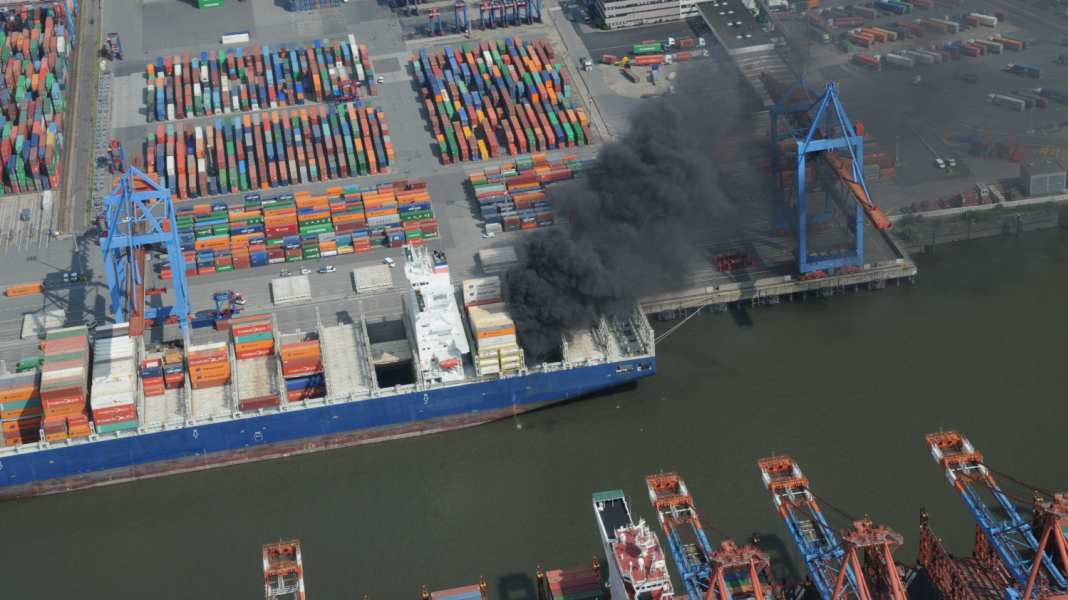
Previously, container inspections were carried out manually and on a random basis due to the large number of containers. Time and again, the officials found that not all dangerous goods transported via the Port of Hamburg were classified and declared as such. In September 2016, undeclared hazardous goods led to a fire on the container ship "CCNI Apauco".
"Many of us still remember the serious fire on a container ship in 2016, when numerous emergency services spent several days trying to extinguish the fire on board," says Olaf Hagenloch, Deputy Head of the Hamburg Waterway Police. "This shows how important it is to declare dangerous goods as such for safe transport. Thanks to the AI support, my colleagues now have an innovative tool at their disposal that significantly increases both their own safety and that of the port as a whole."
Around 7.7 million container units were handled in the Port of Hamburg last year. These sometimes contain substances that are considered dangerous goods and must be declared in accordance with regulations. In future, the waterway police will check the cargo units using the suggestion lists drawn up by the AI.
Read more about the work of the waterway police:
Senate Chancellery supports software development
The development of the software was realised as part of the InnoTecHH Fund of the Office for IT and Digitalisation in the Senate Chancellery. The fund is intended to support public authorities in testing and realising innovative ideas with an AI focus. The ideas come from the employees themselves. The aim is to create tangible added value for employees of the Hamburg administration and citizens. The Office for IT and Digitalisation has been providing funding and expertise for this since the beginning of 2023.
State Councillor Jan Pörksen, Head of the Senate Chancellery: "With the AI support for the declaration of dangerous goods, we were able to successfully transfer the first pilot into daily operations together with the Hamburg police. I am delighted that we can use this solution to support the waterway police in ensuring greater safety in the harbour."
Programme is trained with probability factors
The IT software company Dakosy was responsible for the technical implementation. In order to systematically identify undeclared dangerous goods, the authority first needed digital access to all export and import shipment information on the containers handled via the Port of Hamburg. This information is available in the Port Community System (PCS), which Dakosy operates. This information was then integrated into the digital dangerous goods information system (GEGIS) of the waterway police and trained with an AI. "The shipments were marked with a probability factor for undeclared dangerous goods and checked by us," explains Lutz Dreyer, Head of Unit at the Waterway Police WSP 52, Central Dangerous Goods Monitoring Centre. Thilo Buchheister, who manages the project for Dakosy, adds: "We use a deep learning model for the automated, regular training procedures and can therefore also incorporate new aspects, such as additional goods descriptions, into the analysis." The waterway police now have a continuously learning AI system. With the help of the automated training runs, the database is becoming ever larger, the suggestion lists ever more accurate and the work of the officers more efficient and time-saving, Dreyer is pleased to report.
The basis for the AI project was the new version of the Hamburg Port Security Act. This is because it is only through this that the water protection authority is authorised to process cargo data in order to determine whether undeclared dangerous goods are being loaded or unloaded in transport units in the Port of Hamburg. Previously, the water pollution control authority lacked the legal basis to systematically check containers that were not declared as dangerous goods.

